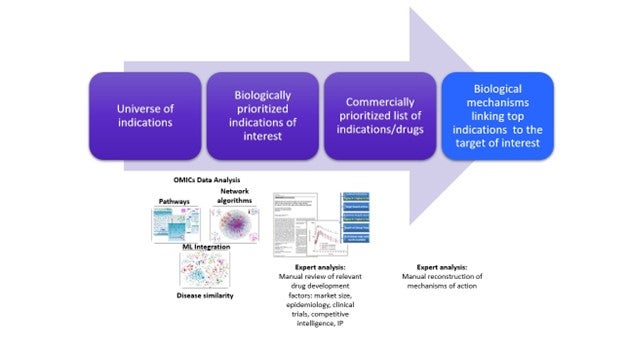In the ever-evolving legal landscape, staying informed is more crucial than ever for legal professionals, law students, and anyone interested in understanding the law. Legal blogs have become an essential resource, offering timely updates, expert analysis, and insightful commentary on various legal issues. From deep dives into landmark cases to the latest legislative changes, these blogs provide valuable perspectives that help readers stay ahead of trends and developments. In this article, we explore the top legal blogs and commentary for 2024, carefully selected based on their credibility, relevance, and influence. Whether you’re a seasoned attorney, a budding law student, or a curious reader, these blogs offer indispensable insights to keep you informed and engaged.
Delve into this topic with alijyun.com for a comprehensive understanding.
1. Introduction to Legal Blogs and Their Importance
Legal blogs have become a powerful tool for sharing knowledge and encouraging informed conversations within the legal community. These digital platforms, often maintained by law firms, legal scholars, or practicing attorneys, are valuable resources for explaining complex legal concepts, offering commentary on current events, and analyzing important court cases. In today’s fast-paced world, where legislative changes and judicial rulings can impact various aspects of society, legal blogs provide an accessible way to stay informed.
These blogs go beyond mere reporting, offering in-depth analysis and expert opinions. This enriched understanding and practical insight proves invaluable for legal professionals. By staying current with these blogs, professionals can better serve their clients, anticipate legal trends, and prepare for potential challenges. Furthermore, these blogs serve as educational tools for law students and new lawyers. They provide real-world perspectives that bridge the gap between academic knowledge and practical application.

2. Criteria for Selecting Top Legal Blogs
To find the best legal blogs, careful consideration must be given to several essential criteria. Above all, credibility is paramount. The blogs should be authored or supported by respected legal professionals, law firms, or renowned legal academics. Their qualifications, experience, and expertise lend authority to the content, making it trustworthy and informative.
Content relevance and accuracy are paramount. Blogs should deliver timely updates on legal developments, case law, and legislative changes, ensuring accuracy through thorough research. Regular updates demonstrate the blog’s active maintenance and commitment to providing current information.
Engagement is paramount. Leading legal blogs stimulate interaction through comments, discussions, and community involvement, fostering a sense of participation and embracing diverse perspectives. Accessibility and clarity are essential, ensuring that the content is presented in a manner comprehensible to legal professionals and the general public alike.
Finally, originality and unique insights are key differentiators for exceptional legal blogs, offering fresh perspectives and thought-provoking analysis.

3. Prominent Legal Blogs for In-Depth Case Analysis
For legal professionals seeking comprehensive analysis of court rulings and legal precedents, certain legal blogs offer invaluable resources. These blogs transcend superficial summaries, providing in-depth examinations of significant cases. They meticulously break down legal arguments, exploring their implications for future legal scenarios. This detailed approach makes them essential reading for lawyers, law students, and legal scholars who strive to stay abreast of evolving case law.
One of the key features of these blogs is their ability to provide context and background information, helping readers understand the broader legal landscape. They often include expert commentary from practicing attorneys and legal academics who dissect court decisions, offering insights into the reasoning behind judicial outcomes. This type of analysis not only enhances the reader’s understanding of complex legal issues but also aids in anticipating the impact of these cases on various sectors.
Prominent examples of blogs specializing in case analysis include those maintained by law schools, such as Harvard Law Review, and independent platforms like SCOTUSblog, which focuses on U.S. Supreme Court cases. These blogs provide readers with a wealth of information, presented in a scholarly yet accessible manner, making them essential resources for anyone invested in the legal field.

4. Leading Blogs on Legislative Updates and Changes
Keeping abreast of legislative updates and changes is essential for legal professionals, policymakers, and anyone affected by new laws and regulations. Leading legal blogs specializing in legislative developments play a vital role in ensuring readers remain informed about these changes, which can impact various facets of law and society. These blogs offer timely insights into new bills, amendments to existing laws, and the results of legislative sessions at both the state and federal levels.
One key attribute of these blogs is their ability to make complex legal texts accessible to a wider audience by providing concise summaries and explanations. They frequently feature commentary from legal experts who analyze the implications of new legislation, offering valuable insights into how these changes may impact businesses, individuals, and legal practices. By monitoring ongoing legislative trends and identifying shifts in policy, these blogs empower their readers to stay informed and ahead of the curve.
The National Law Review and JD Supra are prominent examples of blogs within this category. These platforms consistently publish updates on legislative activity and offer insightful analysis of significant legal trends. Legal professionals, academics, and media outlets frequently turn to these blogs for their authoritative and trustworthy content. By effectively blending factual reporting and expert commentary, they provide invaluable resources for understanding and navigating the intricacies of legislative changes.
5. Top Legal Blogs for Law Students and New Lawyers
For aspiring and newly minted legal professionals, accessing the right resources is paramount in building a robust foundation for their careers. Top legal blogs geared towards these audiences offer invaluable insights, guidance, and educational content that bridge the gap between academic theory and the practical realities of law practice. These blogs provide tips on exam preparation, explore diverse areas of law, offer career advice, and present real-world scenarios that new lawyers are likely to face in their professional journey.
These blogs are frequently authored by experienced attorneys, legal educators, or recent law graduates. They offer relatable and supportive perspectives, drawing from their own experiences. The content often includes guidance on excelling in law school, navigating internships, and preparing for bar exams. Additionally, these blogs delve into topics like networking, resume building, and job search strategies specifically tailored for the legal industry.
Aspiring lawyers can find valuable resources in blogs such as Law School Toolbox and Legal Cheek. Both platforms provide a wealth of information designed to help future lawyers thrive. These blogs offer essential knowledge and encouragement, guiding individuals through the challenging initial steps of a legal career.
6. Expert Commentary Blogs for Legal Trends and Predictions
Expert commentary blogs, dedicated to dissecting legal trends and forecasting future developments, offer invaluable foresight into the trajectory of the legal field. These blogs are frequently penned by seasoned attorneys, legal scholars, and industry experts who dissect current events, analyze landmark cases, and scrutinize emerging trends. Their insightful analyses equip readers with the ability to anticipate changes in legal practices, comprehend the implications of new regulations, and stay abreast of industry shifts.
These blogs are adept at breaking down complex legal developments into easily understandable information for their readers. They explore topics like the influence of technology on the legal landscape, changes in public policy, and emerging areas of legal practice, such as cybersecurity, intellectual property, and environmental law. By analyzing current trends, these knowledgeable commentators offer insights into future legal challenges and opportunities, making their content an essential resource for legal professionals and businesses seeking to manage risks or exploit new developments.
Well-known examples in this category include Above the Law and LegalTech News, which consistently offer sharp analysis and expert opinions on pressing legal issues. These platforms not only keep readers informed about current developments but also anticipate future trends. By following these expert commentary blogs, legal professionals can adopt a proactive approach to their practice, positioning themselves as knowledgeable and ahead of the curve.
7. Niche Legal Blogs: Focus on Specific Areas of Law
Niche legal blogs cater to specific legal areas, offering comprehensive coverage and insightful expertise in particular fields. These blogs are indispensable resources for professionals seeking to expand their knowledge base or maintain up-to-date on specialized topics. By concentrating on niche areas, like immigration law, environmental regulations, or intellectual property, these blogs provide focused information highly relevant to practitioners operating within those domains.
These blogs often delve into specialized topics, offering in-depth analysis, case studies, and insights into the latest developments within their niche. They frequently feature contributions from leading experts in their respective fields, providing readers with a comprehensive understanding of complex issues often overlooked by general legal blogs. Moreover, niche blogs can equip readers with practical advice, best practice guidelines, and updates on pertinent legislation and case law.
For instance, blogs such as Immigration Law Advisor and The IPKat, dedicated to immigration and intellectual property law, respectively, provide valuable resources. These specialized platforms are crucial for legal professionals.
8. Interactive and Community-Driven Legal Blogs
Interactive and community-driven legal blogs offer a dynamic and engaging approach to legal discourse, fostering active participation and collaboration among readers. Unlike traditional blogs that primarily provide content, these platforms encourage user interaction through comments, forums, and discussion threads, creating a vibrant community where legal professionals, students, and enthusiasts can exchange ideas and insights.
These blogs often feature interactive elements, such as Q&A sessions with legal experts, live webinars, and user-generated content. This participatory approach enhances the learning experience and empowers readers to seek advice, share experiences, and engage with peers in real time. For law students and new lawyers, these community-driven platforms are especially valuable, offering opportunities to connect with experienced professionals, ask questions, and gain practical advice.
Popular examples of such platforms include Lawyerist and The Law Society Gazette, both of which feature active forums and encourage reader contributions. These blogs strive to be more than just informational resources, acting as collaborative spaces where users can share their knowledge and participate in discussions on legal trends, career development, and practice management.
Interactive and community-driven legal blogs promote networking, diverse viewpoints, and a supportive environment for continuous legal learning and professional development by cultivating a sense of community and collaboration.
9. Conclusion: The Value of Staying Informed Through Legal Blogs
In conclusion, legal blogs are a vital resource for everyone involved in the legal profession. They provide a wide range of insights, encompassing detailed case analyses, legislative updates, and expert commentary on legal trends and specialized areas. For legal professionals, staying informed through these blogs is crucial for keeping abreast of the rapid changes and advancements in the law. Not only do they deliver timely information, but they also offer expert opinions and practical guidance that can elevate one’s practice and professional development.
Legal blogs serve as invaluable resources for law students and new lawyers, providing educational content, networking opportunities, and career guidance. These platforms offer a supportive environment where individuals can access advice and insights as they navigate their professional journeys. Interactive and community-driven blogs enhance this experience by fostering engagement and collaboration among readers, creating a vibrant online community. Ultimately, the value of legal blogs lies in their ability to keep individuals well-informed and connected within the ever-evolving legal landscape.
alijyun.com

